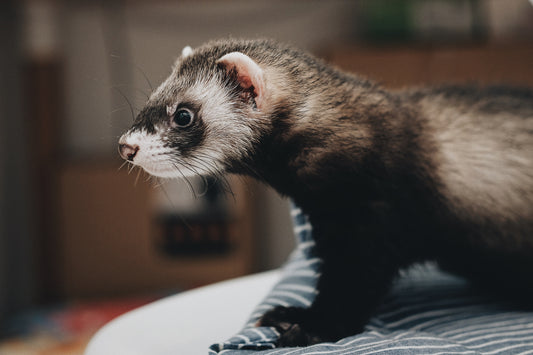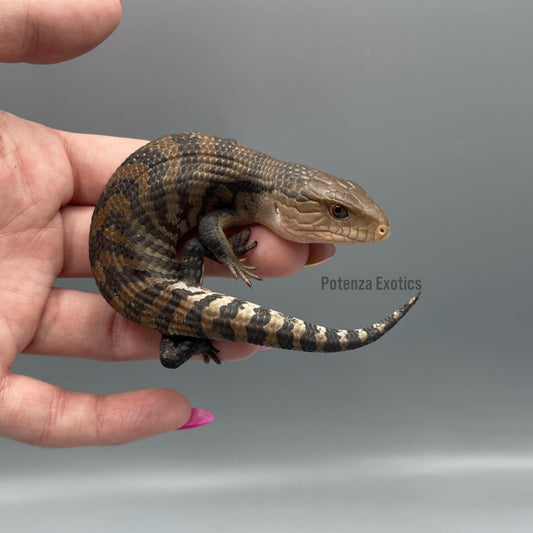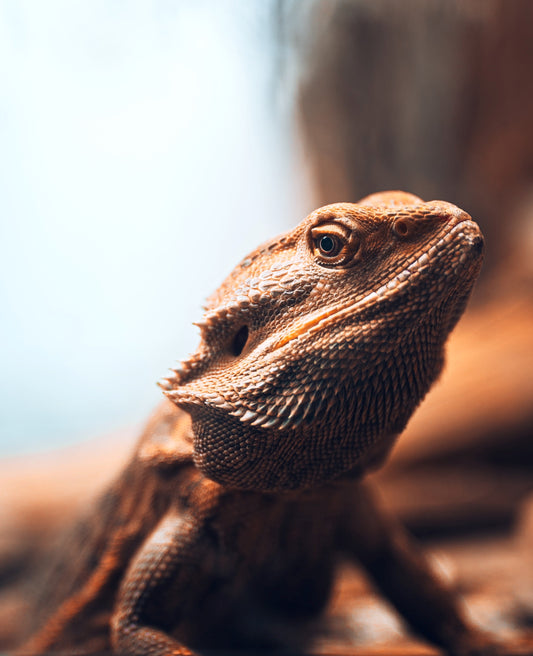As a prospective hedgehog owner, learning what and how much to feed your new hedgehog is an important first step. Maintaining a quality, well balanced diet will be the most important factor in ensuring your new hedgehog lives a long and healthy life.
Also, try not to get too overwhelmed with all the different food options and recommendations you find online. You’ll find many people with very strong opinions on diet, but there is no “perfect” solution that fits everyone.
However, we’ll be sure to be provide you with our recommendations and diet tips that have worked best for us over the years.
Let’s get started!
Hedgehogs Main Diet
The foundation, or main source of your hedgehogs diet will rest heavily on Premium High Quality Cat Food or kibble designed specifically for hedgehogs.
This will be your hedgehogs staple diet and provide all the essential nutrients. All other food options we discuss later will simply act as supplements for a more well rounded diet.
But first off, what kind of cat food are we talking about?
For the most part, you’ll be looking for the typical dry kibble cat food that can be easily found it nearly every grocery store. The ideal protein, fat, and fiber content would look something like this:
| Protein | 28-35% |
| Fat | 8-15% |
| Fiber | 6% |
For baby hedgehogs and underweight hedgehogs you'll be using food with fat content towards the upper end range of that band or even slightly higher. You could also provide more fat content or by simply adding fatty insect to their diet like super worms or butter worms.
Our Hedgehog Mix
You'll want to make sure you stick to a select number of brands that offer high quality ingredients and the proper amounts of protein and fat. We’ve found the best to mix of the following three kibble:
- Purina Pro Plan Kitten
- Purina Pro Plan Cat Sensitive Skin & Stomach
- Purina ONE Tender Selects Blend (Chicken)

We mix all three blends of cat food together, but all will offer the protein and fat needs for your hedgehog. If you choose to use an options outside of these three, please be sure to verify it has the correct protein/fat requirements and does not contain any fillers.
You’ll also want to avoid any of the “hedgehog food” you see advertised either online or in pet stores. Despite the name, these rarely contain the necessary protein to fat ratio we’re looking for and are even full of fillers that hedgehogs can’t even digest.
The only exception to this we’ve found would be Hedgehog Precision. This will be a bit more expensive than the cat food options, but it has high quality ingredients and a bulk of the protein comes from insects.
Again, please avoid any commercial foods branded for hedgehogs unless you’ve done your research. I’m sure there are other brands out there I’m not yet aware of, but the ones I’ve seen are not suitable for hedgehogs.
Feeding Your Hedgehog Insects
Insects are an excellent food source for your hedgehog. Most hedgehogs will jump at the chance to add a nice bug to their diet if given the opportunity. Insects will also add additional levels of fiber to your hedgehogs diet which they likely won't get enough of from the simple cat kibble diet.
Hedgehogs have the rare ability to digest chitin, which will be the shell of the insect. This will be an excellent form of additional fiber for your hedgehog since they won't be able to get this from vegetables like most other animals.
Just be sure to get your insect feeders from a trusted source. Ideally, this would be coming from a pet store or insect breeder doing so for the sole purpose of feeding other animals. Wild caught insect can pass on diseases or parasites to your hedgehog so never consider wild caught as an options.
Some excellent insect feeders include:
- Mealworms
- Butter Worms
- Dubia Roaches
- Super Worms
- Calci Worms
- Hornworms
The chart below from Reptifiles breaks down the protein, fat, and fiber content for the average gut loaded healthy insect. This can act as a helpful guide if you're trying to get additional proteins or fats for your hedgehog.
| Feeder | Protein | Fat | Fiber | Moisture |
| Mealworms | 18% | 10% | 2% | 66% |
| Super Worms | 19% | 16% | 4% | 60% |
| Hornworms | 9% | 3% | 1% | 85% |
| Butterworms | 16% | 17% | 1% | 60% |
| Calci Worms | 17% | 11% | 6% | 64% |
| Dubia Roaches | 21% | 9% | 5% | 65% |
| Wax Worms | 14% | 18% | 3% | 62% |

Foods to Avoid Feeding Hedgehogs
Hedgehogs are opportunistic feeders and will eat a wide variety of food, even that which might not be good for them nutritionally. I’ll get to the list of foods they can eat in a minute but let’s be sure to get the foods to avoid out of the way right up front.
To begin with, hedgehogs are lactose intolerant. That means you should avoid feeding any food products containing dairy as it will cause digestive issues and lead to stomach pain. That will include milk, yogurt, cheese, and anything else containing dairy.
You'll also want to avoid feeding your hedgehog any acidic foods. This can cause sores, ulcers, and stomach pain. The would include foods like:
- Lemons
- Grapes
- Tomatoes
- Raisins
- Candy
- Oranges
Fruits and Vegetables For Hedgehogs
Although there are many fruits and veggies that are not necessarily "dangerous" to eat. I wouldn't recommend you add any fruits or vegetables into your hedgehogs diet.
Hedgehogs lack a cecum, meaning they can't digests fruits or vegetables like people can. I'd instead recommend you pass these nutrients on through the insects you end up feeding your hedgehog. That will be done through a process called "gut loading."
You'll basically just provide the feeder insects fruits and vegetables the night before, then feed those same insects to your hedgehog. That way your hedgehog gets not only the fat, fiber, and protein from the insect, but also the nutritional benefit of the fruits and veggies.
Under-Weight Hedgehogs and Babies
You'll generally want to bump up the fat content for baby hedgehog or if your hedgehog is underweight. This can be done by either incorporating a cat food kibble with a higher fat content or providing additional insects. Insects with higher fat content will include mealworms, butter worms, horn worms, and dubia roaches.
If you decide to begin incorporating a new cat food with additional fat content, be careful to do so slowly. You'll want to mix the new diet into your previous diet slowly, rather than switching all at once.
Mixing Cat Foods
I'd recommend you mix at least two different cat foods together for your staple diet. This will provide some variety in your hedgehogs diet and safeguard in case one of the those foods is cancelled or production is slowed.
A switch all at once could cause your hedgehog a great deal of stress and digestion issues. By providing a mix from the beginning you give yourself some options and provide some variety to your hedgehogs diet as well.
The mix will still need to satisfy your hedgehogs protein and fat needs, so you'll still need to stick with only high quality options.
Switching Your Hedgehog to New Food
When picking up your new hedgehog, your breeder should provide you with a list of food your hedgehog is currently eating. After looking at the ingredients, you may end up deciding to make a switch. Just be careful to do it slowly over time, not all at once.
Transitions to New Diet:
Day 1: Offer 75% of previous diet mixed with 25% of new diet
Day 2: Offer 50% of previous diet mixed with 50% of new diet
Day 3: Offer 25% of previous diet mixed with 75% of new diet
Day 4: Offer only Hedgehog Mix and refer to suggested feeding schedule.
Simple Answer
Providing a healthy diet for your hedgehog is actually much simpler than you might think. Your main focus will need to be finding a high quality cat food that contains the proper protein, fat, and fiber content with no added fillers.
I'd recommend you also supplement your hedgehogs diet with a variety of different insects to provide additional sources of nutrition. Just be sure to get those insects from a trusted source and gut feed them the night before to pass that nutrition off to your hedgehog.
If you have any questions about the food list, or you're interested in more information about our hedgehogs, please contact us here.




